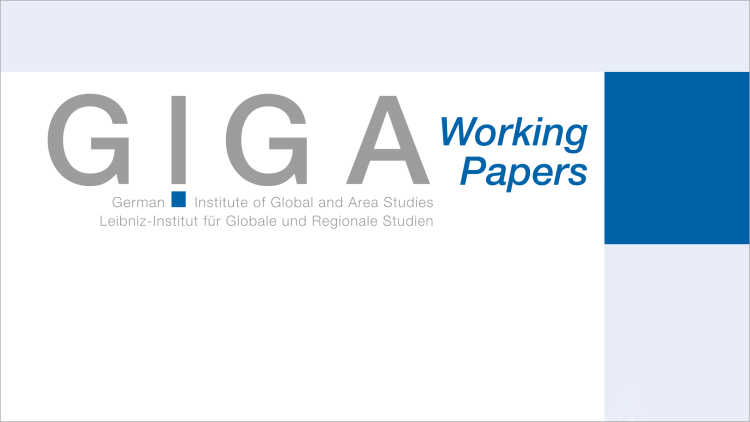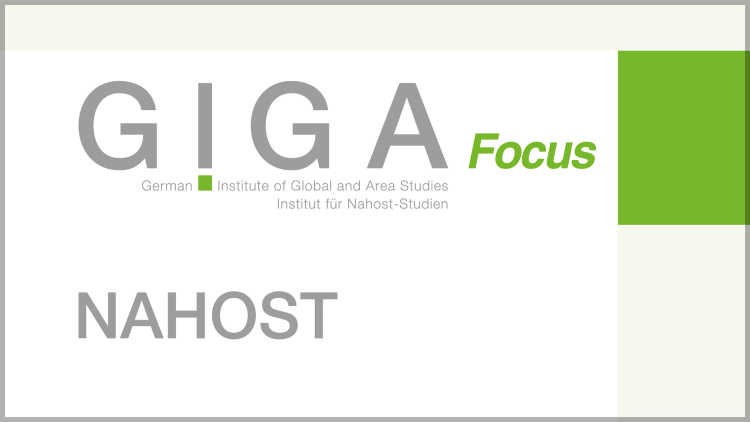- Startseite
- Publikationen
- GIGA Focus
- The Comeback of the EU as a "Civilian Power" through the Arab Spring?
GIGA Focus International Edition English
The Comeback of the EU as a "Civilian Power" through the Arab Spring?
Nummer 2 | 2013 | ISSN: 1862-3581
On 12 October 2012, the European Union was awarded the Nobel Peace Prize for, among other things, “the successful struggle for peace and reconciliation and for democracy and human rights,” as the official press release states.
Analysis
The Nobel Prize organization’s explanatory statement matches the EU’s traditional selfimage as a "civilian power" not only in European affairs but also in its foreign relations. However, when applied to the EU’s policy towards the countries south of the Mediterranean, the civilian power approach exhibits many problems.
The Arab Spring has repoliticized cross-Mediterranean relations. In the 1970s, the EU based its self-image as an actor in international relations on a civilian power approach. The aspirations of an ideal civilian power are based on the promotion of nonviolent conflict resolution, democratic values and social justice. Yet in the decade prior to the Arab Spring at the latest, the EU’s approach towards the Arab world had become very “pragmatic,” meaning that European claims regarding the EU’s progressive foreign policy were purely rhetorical.
Still, a heated, partially ideologically charged debate among scholars – and politicians – on the EU’s self-image continued. The main reason the approach managed to remain on the agenda, despite empirical counterevidence, was that the pre-Arab Spring environment, with its authoritarian regimes, was hostile to a civilian power.
With the Arab Spring, a quasi-experimental situation has emerged; whether the European self-image matches the reality thus needs to be tested. Since the Arab Spring it has certainly become more common for European politicians to use major elements of the civilian power approach on the rhetorical level.
When compared with major empirical developments since the Arab Spring, the civilian power approach does not adequately explain European relations with the countries south of the Mediterranean.
Fußnoten
Regionalinstitute
Forschungsschwerpunkte
Wie man diesen Artikel zitiert
Beck, Martin (2013), The Comeback of the EU as a "Civilian Power" through the Arab Spring?, GIGA Focus International Edition English, 2, Hamburg: German Institute for Global and Area Studies (GIGA), http://nbn-resolving.de/urn:nbn:de:0168-ssoar-331767
Impressum
Der GIGA Focus ist eine Open-Access-Publikation. Sie kann kostenfrei im Internet gelesen und heruntergeladen werden unter www.giga-hamburg.de/de/publikationen/giga-focus und darf gemäß den Bedingungen der Creative-Commons-Lizenz Attribution-No Derivative Works 3.0 frei vervielfältigt, verbreitet und öffentlich zugänglich gemacht werden. Dies umfasst insbesondere: korrekte Angabe der Erstveröffentlichung als GIGA Focus, keine Bearbeitung oder Kürzung.
Das German Institute for Global and Area Studies (GIGA) – Leibniz-Institut für Globale und Regionale Studien in Hamburg gibt Focus-Reihen zu Afrika, Asien, Lateinamerika, Nahost und zu globalen Fragen heraus. Der GIGA Focus wird vom GIGA redaktionell gestaltet. Die vertretenen Auffassungen stellen die der Autorinnen und Autoren und nicht unbedingt die des Instituts dar. Die Verfassenden sind für den Inhalt ihrer Beiträge verantwortlich. Irrtümer und Auslassungen bleiben vorbehalten. Das GIGA und die Autorinnen und Autoren haften nicht für Richtigkeit und Vollständigkeit oder für Konsequenzen, die sich aus der Nutzung der bereitgestellten Informationen ergeben.





